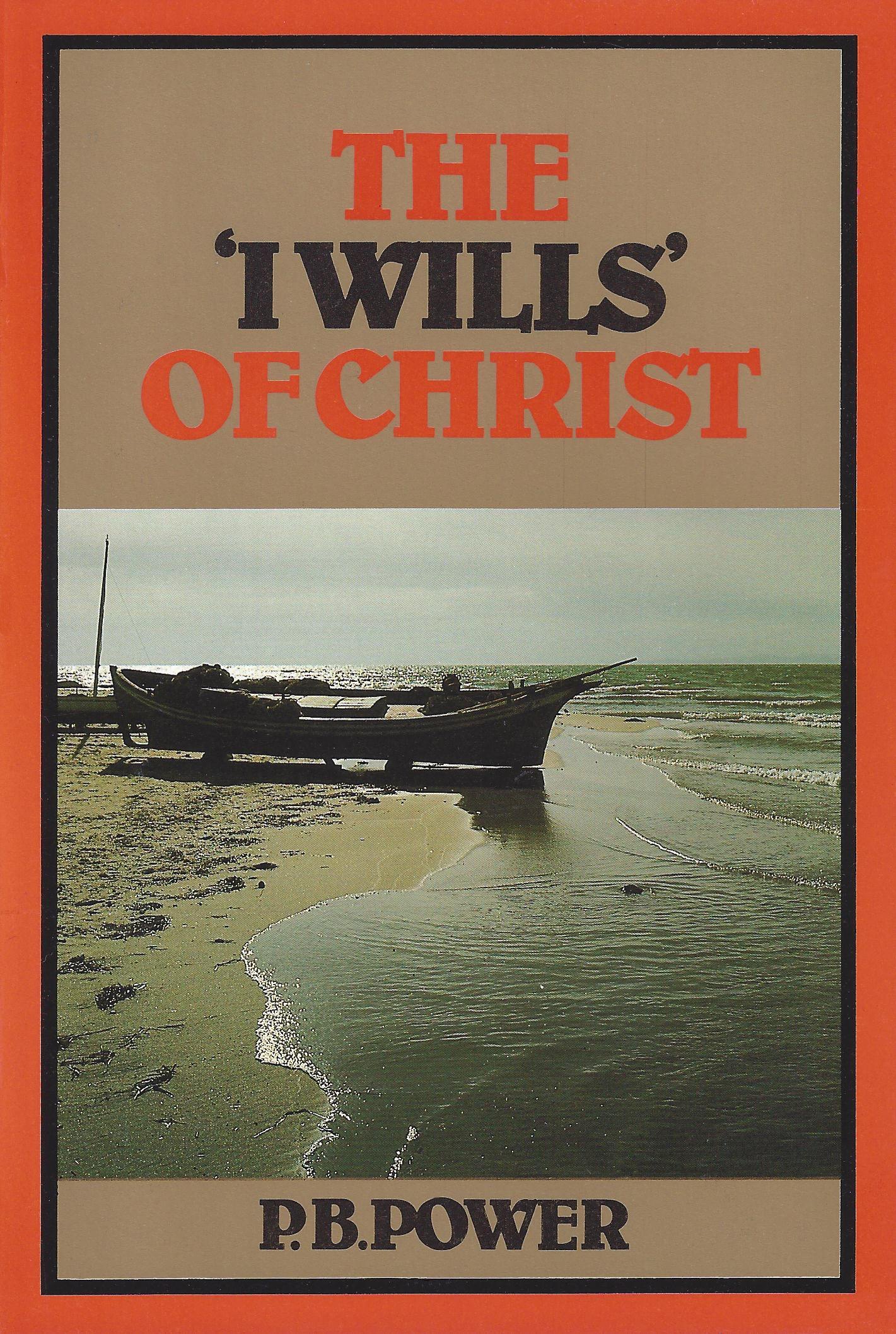The Life of P. B. Power
Philip Bennett Power was born in Ireland in 1822. He graduated at Trinity College, Dublin, and entered the Church of England ministry about 1846, his first charge being at Leicester, where he remained for some two years, during which he began a week-night service in the parlour of a local pub! From Leicester he moved to Holloway, London for a further two years, followed by seven years at Woburn Chapel. But he is best remembered as vicar of Christ Church, Worthing, from 1855-65, after which his health seems to have broken down entirely and he was confined to the life of an invalid. He settled in Eastbourne, where he died in December 1899.
When he began his ministry in Worthing, Power found little evidence of godliness. In fact his evangelical witness was despised and scorned, and his work ridiculed by the local press. In 1859, a determined effort was made to introduce horse-racing on the local sands, and Power published a pamphlet on the question, informing his fellow townsmen that, quite apart from religious principles, there were a number of important considerations which should unite them against such an innovation. It would, for example, foster the gambling habit in young men, to their parents’ sorrow, and their employer’s concern. It would bring to the town men of dubious character, with the inevitable threat to the good character of the local young women. Although it was being widely maintained that it would bring prosperity to the town, Power argued that, since the bookmakers (the real profit-makers) came from outside the town, the gains would leave with them. And further, horse-racing would drive away the better class of visitor from Worthing.
But the opposition was not idle. They employed a London modeller to prepare a ‘guy’ for the 5th of November, (the anniversary of the famous Gunpowder Plot of 1605 in which Guy Fawkes was incriminated), having already made a drawing of Power during one of his services. The cost to the Racing Committee was £20! The figure was attired in a white surplice, with Bible in hand, while the other hand dropped pieces of paper, representing religious tracts. The effigy was then carried through the streets and burnt on the esplanade between the two principal hotels, while the Racing Committee sat at an upper window in one of them ‘to see Power burn’. Meanwhile the police guarded the vicarage, and Power’s children were sent elsewhere for safety. At a later date one of his less influential successors in the parish was heard to exclaim, ‘I wish someone would burn me!’
On the Sunday following the burning the church was filled, and many young people had responded to Power’s special invitation to them to be present. In fact he had received a letter from a young man of Worthing, who had died in a London hospital, asking him to urge young people in the town to turn to the Lord. But the congregation sat in the expectation of hearing a sermon on effigy burning! To their astonishment Power made no reference to the insults he had received — he accepted them gladly for Christ’s sake — and he devoted his entire sermon to preaching Christ and him crucified. Many were impressed; horse-racing was soon abandoned, and some of the vicar’s most bitter opponents became his supporters.
Power was indeed a truly remarkable man. In 1855 he gave a series of lectures on Failure and Discipline on Wednesday mornings. These were on the fifth chapter of the Song of Solomon, and were published later in a small book, which is worth its weight in gold! It shows him to have been a true physician of the soul. In it he deals with the sad state of the true believer who, through neglect of the approaches of Christ to his heart, slights the privilege of closer communion with the Beloved One, and suffers loss as a result. Being far from the opinion that ‘there is nothing good where there is something bad’ he ministers faithfully to this sad condition.
Power’s name deserves to be remembered for another reason. C. H. Irwin wrote of him: ‘What C. H. Spurgeon was among preachers, P. B. Power was among tract writers; the same direct simple Anglo Saxon speech; the same thorough knowledge of human nature; the same keen observation of human life; the same quick eye for the failings of human character, and the same genial humour in exposing and correcting them; the same tender sympathy with the sorrowful and the suffering; and above all, the same all-pervading desire to lead men to Christ; characterized the two men.’ Indeed Spurgeon himself wrote of Failure and Discipline, ‘Mr Power always writes attractively.’
Power took immense pains in gathering authentic information for his tracts. He kept albums of cuttings and extracts from newspapers and magazines which recorded homely and even commonplace incidents of everyday life. And he was himself a keen observer of the life that surged around him in town and village. When he travelled, he would note any out-of-the-ordinary remark passed by a fellow-traveller, and later make full use of it!
Probably Power will be chiefly remembered for three small books, A Book of Comfort, The ‘I wills’ of Christ, and The ‘I wills’ of the Psalms, written during his days at Worthing. His Breviates is also worth reading. It consists of a series of brief expositions based on phrases in Scripture which might easily escape the notice of the reader. One chapter, for example, comments on the ‘great sheet’ and the ‘creeping things’ of Acts 10:11-12:
(1) A great sheet. It is with a God large in mercy that we have to deal. To hear some people talk, we would suppose that the great sheet was no larger than a pocket-handkerchief. They are measuring God’s heart by their own. No wonder that the result is small!
(2) The sovereignty of God’s grace. He is free to have mercy on whom he will. He can see the creeping things hidden away in their dark abodes, ignoble in themselves, despised and downtrodden by all. And he makes as much of them as of the four-footed beasts. He sends his messengers out into the highways and the hedges to compel the poor abject ones to come in.
(3) The minuteness of God’s arrangements. The lesser creatures are even thought of, looked after, and provided for by him.
(4) The depth of God’s condescension is manifested here. Man’s proud nature would have gathered into the sheet only what was of apparent value; but what credit or honour or profit could he get out of creeping things?
It is helpful when :
(i) We consider our own individual insignificance and meanness.
(ii) We are inclined to compare ourselves with those who seem to have some pretensions, as do four-footed beasts.
(iii) We are apt to lose ourselves in our admiration of high spiritual attainments and positions. In doing so we are prone to elevate men, and consequently to forget God. But to simple grace every man owes the position that he has.
(iv) We consider that, however humble in station, we have our place. We may be small and of no reputation, but the Lord thinks upon us and has a place for us.
A chapter on ‘Paul’s deliverance’ (Acts 9:25), introduces an incident recorded in the life of the famous commentator J. A. Bengel:
During one of his illnesses Bengel the commentator sent for a student in the Institution and requested him to impart a word of consolation. The youth replied “Sir, I am but a pupil and a mere learner. I don’t know what to say to a teacher like you.” “What” said Bengel, “A divinity student! and not able to communicate a word of Scripture comfort!” The student, abashed, contrived to utter the text “The blood of Jesus Christ, God’s Son, cleanseth us from all sin.” “That is the very word I want”, said Bengel; “it is quite enough,” and taking him affectionately by the hand he dismissed him. The great commentator was ready to receive the blessing from the hand of the humble student, and God was ready to give it.
In many ways, the preface to his book Pivot Words of Scripture is characteristic of the spirit in which Philip Bennett Power wrote: ‘The following pages have been for the most part written during the sunnier hours of protracted illness. They are dedicated to the physician to whom, under Providence, the author owes it, that the sunny hours have been so many, and the twilight ones so few. He would have these pages considered as the exercise of such ministry as is still permitted to him, and it may be in the wonderful arrangement of God, that someone, who might have been unreached by the ministry of mouth, may be blessed by the ministry of pen.’ He goes on to speak of ‘a few little words of Holy Scripture’ and prays ‘that God’s Spirit will make them suggestive’ and great blessing may rest upon the time spent upon little words.’ His pastoral heart, and rich spiritual experience, born out of years of service and affliction, is displayed in everything he wrote.
Power’s ministry was carried on more or less throughout almost the entire reign of Queen Victoria, and he is a Victorian par excellence. In certain respects his style is certainly dated, but his writings retain a good measure of spiritual vitality and freshness, and some of them merit republication. They ring true to the Word of God, and while there is little in them which will appeal to those interested in the merely academic, the message they bring to the rank and file of the people of God will never die away.
Following the publication of this title by the Trust in 1974 a number of readers asked for details on the author’s life. The above article was published in the January 1977 edition of the Banner of Truth magazine in response to this request. We are indebted to Mr S. M. Houghton and to Mr M. J. Micklewright, of the Evangelical Library, for supplying us with the information here printed.
P. B. Power Titles

Description
Philip Bennett Power was born in Ireland in 1822. He graduated at Trinity College, Dublin, and entered the Church of England ministry about 1846, his first charge being at Leicester, where he remained for some two years, during which he began a week-night service in the parlour of a local pub! From Leicester he moved […]

The ‘I Wills’ Of Christ
Thoughts on Some of the Passages in Which the Words 'I will' are Used by our Lord Jesus Christ
Description
Philip Bennett Power was born in Ireland in 1822. He graduated at Trinity College, Dublin, and entered the Church of England ministry about 1846, his first charge being at Leicester, where he remained for some two years, during which he began a week-night service in the parlour of a local pub! From Leicester he moved […]
Latest Articles
Finished!: A Message for Easter March 28, 2024
Think about someone being selected and sent to do an especially difficult job. Some major crisis has arisen, or some massive problem needs to be tackled, and it requires the knowledge, the experience, the skill-set, the leadership that they so remarkably possess. It was like that with Jesus. Entrusted to him by God the Father […]
Every Christian a Publisher! February 27, 2024
The following article appeared in Issue 291 of the Banner Magazine, dated December 1987. ‘The Lord gave the word; great was the company of those that published it’ (Psalm 68.11) THE NEED FOR TRUTH I would like to speak to you today about the importance of the use of literature in the church, for evangelism, […]
